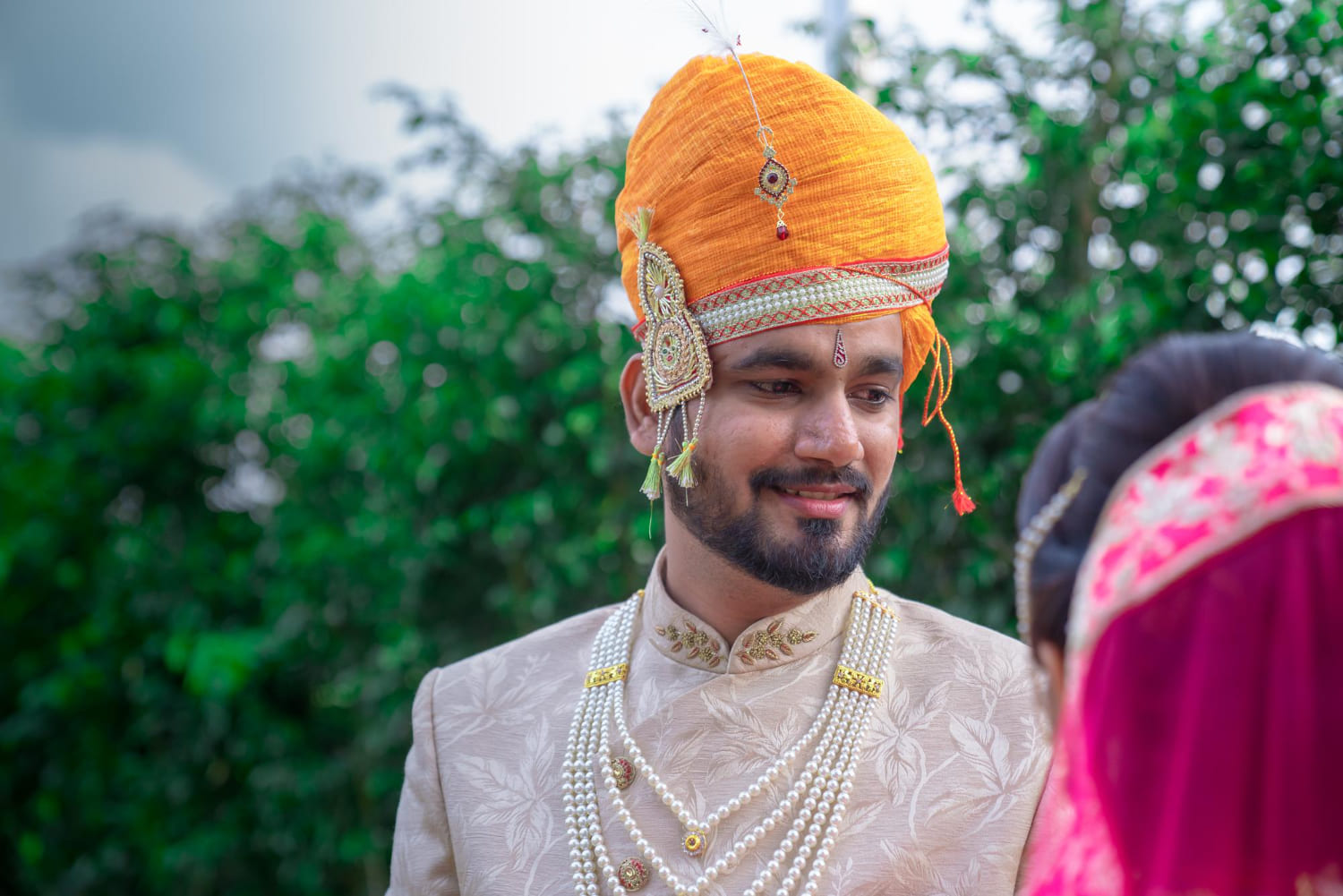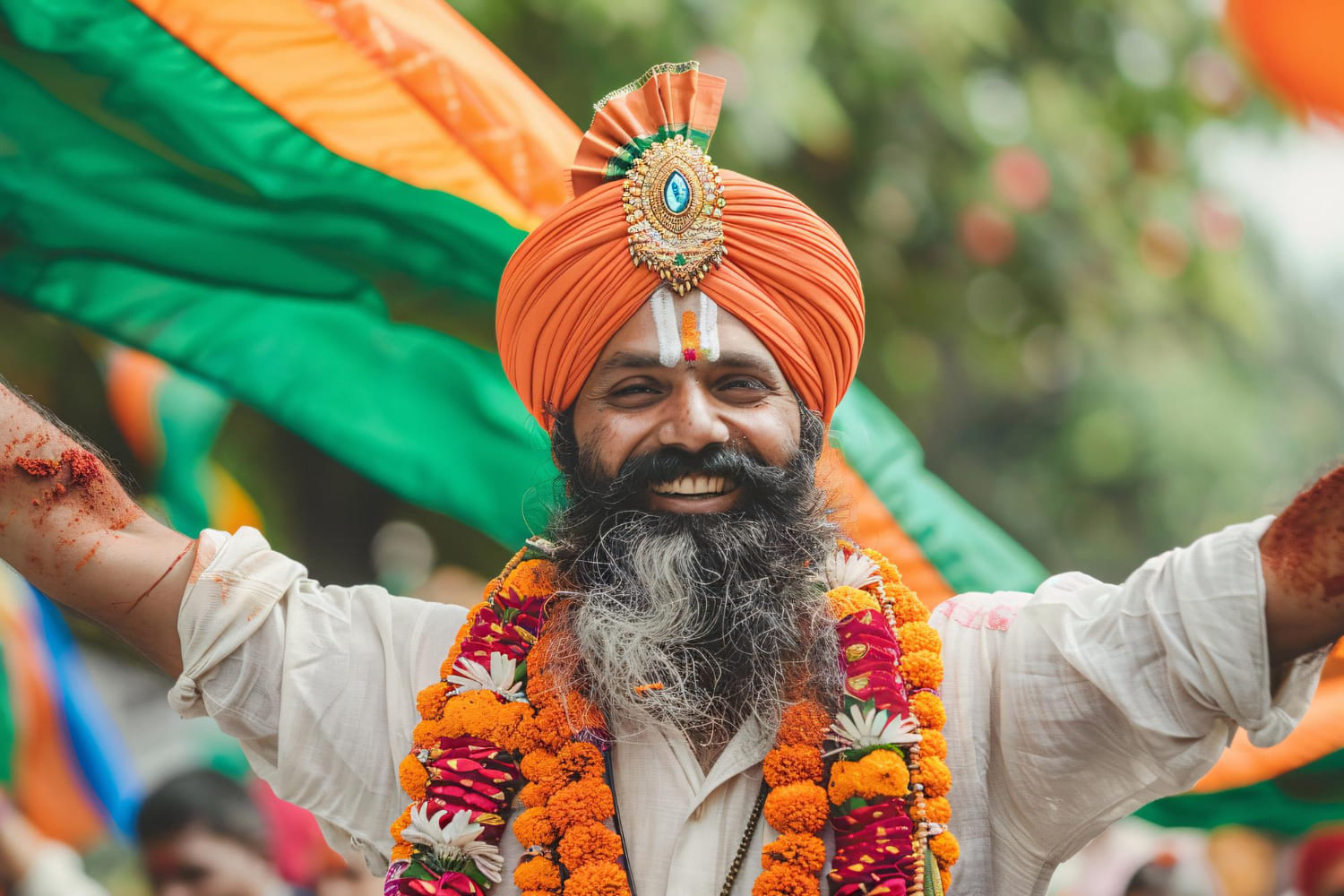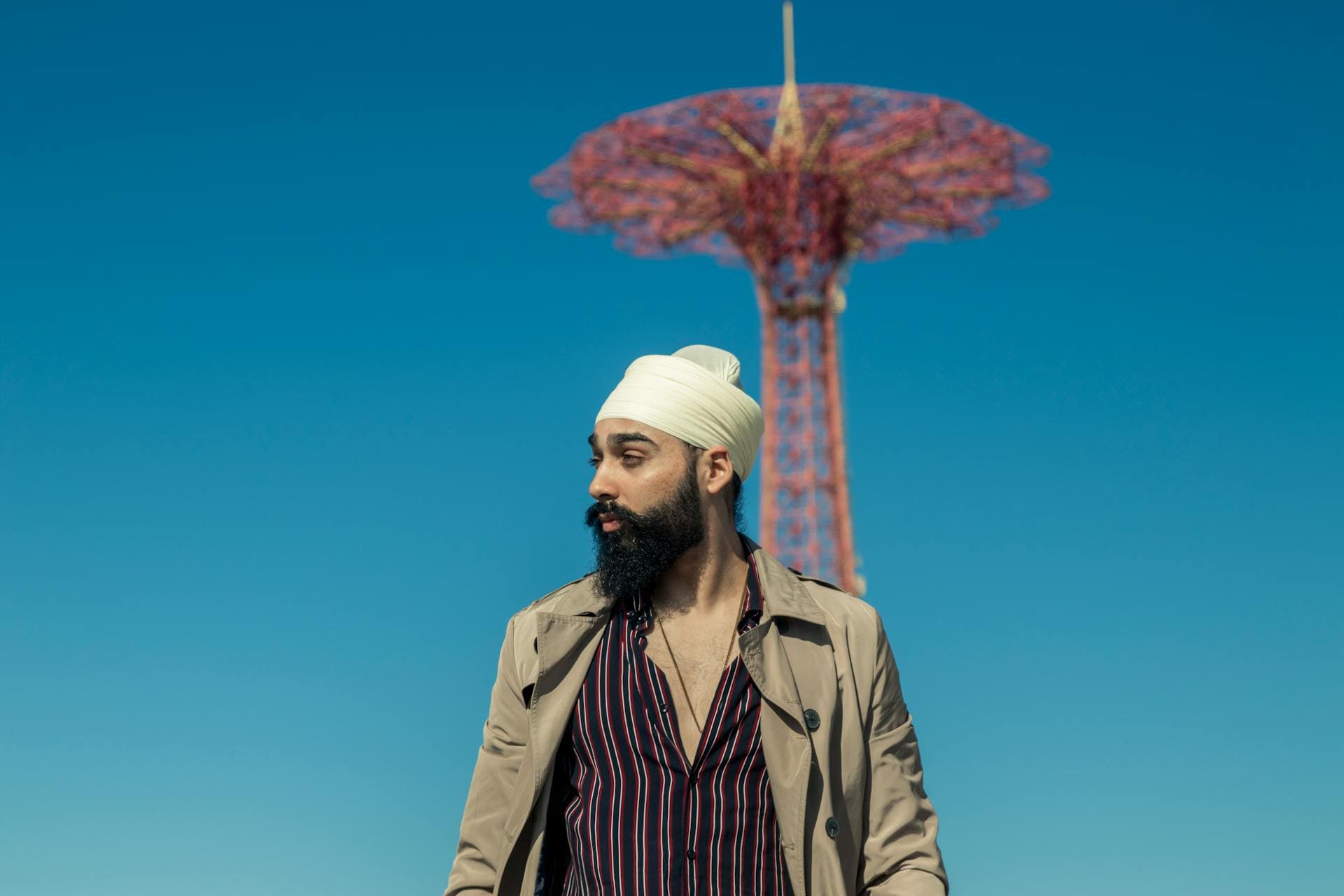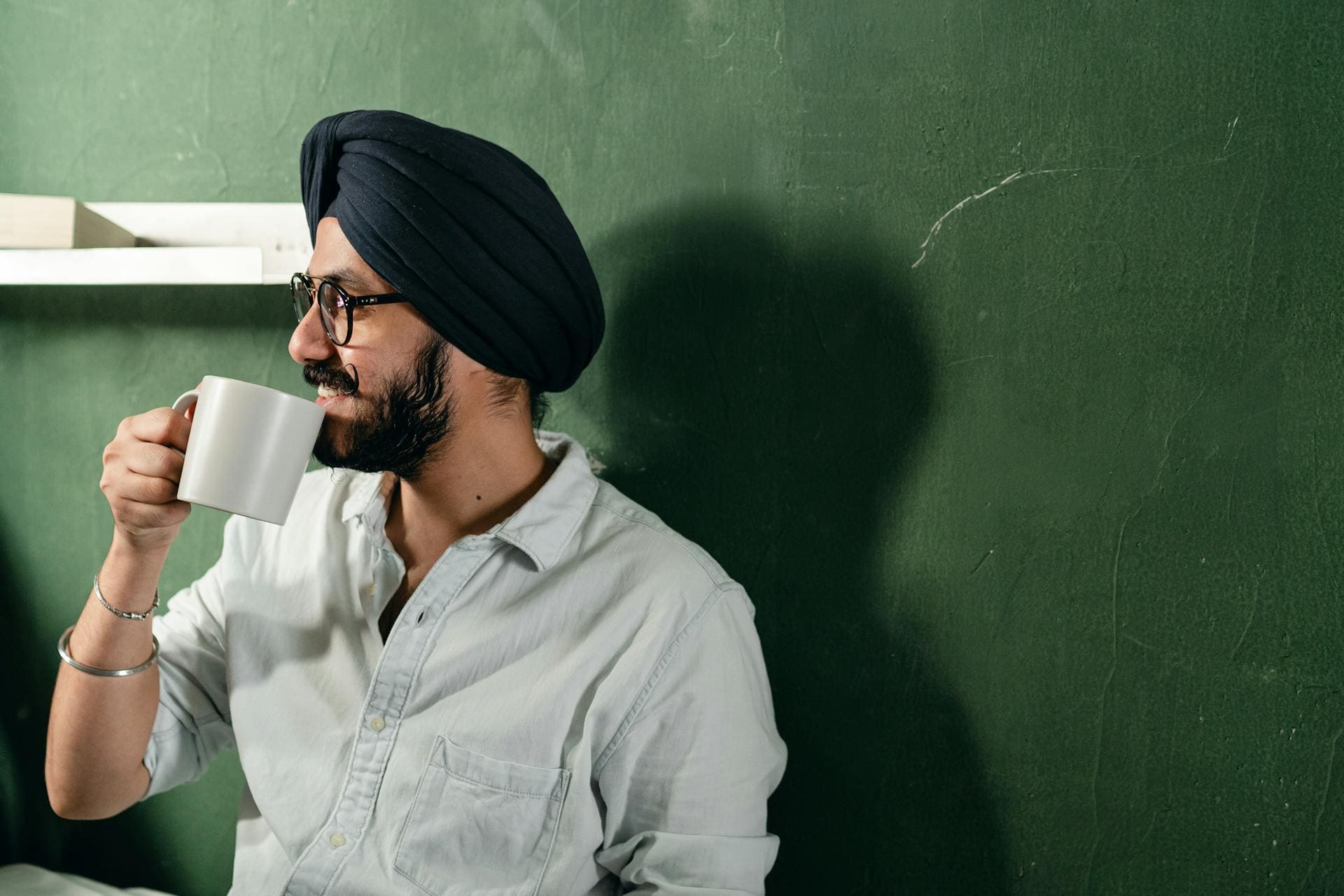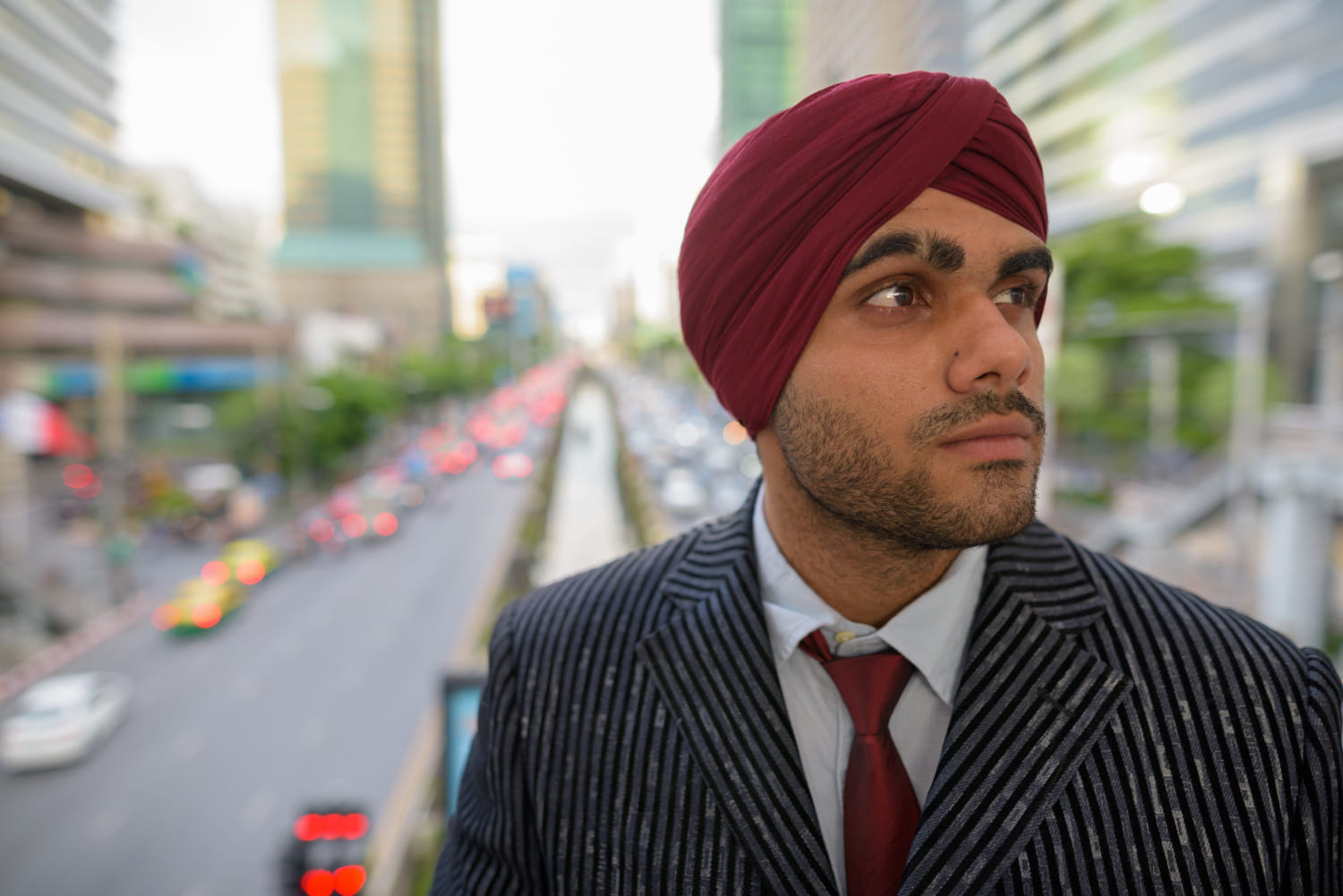Sikhism is a monotheistic religion that originated in the Punjab region of India in the 15th century. The religion is based on the teachings of Guru Nanak and his nine successors, who are collectively known as the Sikh Gurus.
Sikhs follow a set of religious practices, including daily prayers, meditation, and service to others.
One of the most important aspects of Sikhism is the celebration of holidays and festivals, which are an integral part of the religion.
These celebrations are an opportunity for Sikhs to come together, offer prayers, and engage in community service. Some of the most significant Sikh holidays include Vaisakhi, Diwali, and Gurpurab.
In this article, we will provide a comprehensive guide to Sikh holidays and celebrations. We will cover the history and significance of each holiday, as well as the customs and traditions associated with it.
Whether you are a Sikh looking to deepen your understanding of your religion or someone interested in learning more about Sikhism, this guide will provide you with all the information you need to know about Sikh holidays and celebrations.
Significance of Sikh Holidays
Sikh holidays and celebrations hold great importance in the Sikh faith. These events are opportunities for Sikhs to come together, reflect on their shared history, and strengthen their commitment to their faith.
Many Sikh holidays commemorate the lives and teachings of the ten Sikh Gurus, who founded and developed the Sikh religion.
One of the most significant Sikh holidays is Vaisakhi, which celebrates the creation of the Khalsa, a community of Sikhs who are dedicated to upholding the values of the Sikh faith.
The Khalsa was formed by Guru Gobind Singh, the tenth Sikh Guru, in 1699. Vaisakhi is celebrated on April 13 or 14 each year and is marked by processions, parades, and the reading of the Sikh holy book, the Guru Granth Sahib.
Another important Sikh holiday is Gurpurab, which commemorates the birthdays or anniversaries of the ten Sikh Gurus. These events are marked by special prayers, hymns, and the reading of the Guru Granth Sahib.
The most important Gurpurab is the birthday of Guru Nanak, the founder of Sikhism, which is celebrated in November each year.
Baisakhi is another significant Sikh holiday that is celebrated in April each year. This holiday marks the beginning of the harvest season and is also associated with the creation of the Khalsa. Sikhs celebrate Baisakhi with processions, music, and the sharing of food.
Sikhs also celebrate Diwali, the Hindu festival of lights, which is an important event in the Sikh calendar.
Diwali celebrates the victory of light over darkness and is marked by the lighting of lamps, the exchange of gifts, and the sharing of sweets.
Overall, Sikh holidays and celebrations are an important part of the Sikh faith. They provide opportunities for Sikhs to come together, celebrate their shared history, and strengthen their commitment to their faith.
Gurpurabs
Gurpurabs are the celebrations of the lives and teachings of the ten Sikh Gurus. These celebrations are an important part of the Sikh faith and are observed with great enthusiasm and devotion.
Gurpurabs are marked by the reading of the Guru Granth Sahib, the Sikh holy book, and by the singing of hymns and devotional songs.
The most important Gurpurab is the birthday of Guru Nanak Dev Ji, the founder of Sikhism, which is celebrated in November.
Other important Gurpurabs include the birthdays of the other nine Gurus, the martyrdoms of Guru Arjan Dev Ji and Guru Tegh Bahadur Ji, and the installation of the Guru Granth Sahib as the eternal Guru of the Sikhs.
During Gurpurabs, Sikhs gather at gurdwaras, the Sikh places of worship, to participate in kirtan, the singing of devotional songs, and to listen to katha, the telling of stories from the lives of the Gurus.
Langar, the communal meal, is also an important part of Gurpurabs, and is served to all who attend the celebrations, regardless of their religion or social status.
Gurpurabs are celebrated according to the Nanakshahi calendar, which was introduced by the Shiromani Gurdwara Prabandhak Committee in 2003. The calendar is based on the solar year and has fixed dates for all the Gurpurabs.
However, some Sikhs still follow the traditional lunar calendar, which has different dates for the Gurpurabs.
Vaisakhi
Vaisakhi, also known as Baisakhi, is one of the most important festivals in the Sikh calendar. It is celebrated on April 13 or 14 every year and marks the beginning of the Sikh New Year. Vaisakhi also commemorates the creation of the Khalsa, the Sikh community of pure and devout followers.
The festival has both religious and cultural significance. For Sikhs, it is a time for prayer, reflection, and renewal of their faith. They visit Gurdwaras, the Sikh place of worship, and participate in processions and ceremonies.
The highlight of the festival is the Nagar Kirtan, a Sikh parade that features music, singing, and the display of the Sikh flag.
For Punjabi farmers, Vaisakhi is a time to celebrate the harvest season. They offer prayers for a bountiful harvest and thank God for the blessings of the land. The festival is also an occasion for families to come together, share food, and exchange gifts.
During Vaisakhi, Sikhs also perform seva, or selfless service, to their community. They prepare and distribute langar, a free meal for all, and engage in other acts of charity and kindness. The festival is a reminder of the Sikh principles of equality, compassion, and service to humanity.
Diwali
Diwali, also known as the Festival of Lights, is one of the most significant festivals celebrated by Sikhs, Hindus, and Jains. It is a five-day festival that usually falls in late October or November, depending on the lunar calendar.
Diwali is a time for family gatherings, feasting, and lighting lamps or candles to symbolize the victory of good over evil.
For Sikhs, Diwali holds a special significance because it commemorates the release of Guru Hargobind, the sixth guru, and 52 other princes from prison in 1619. The festival is also an occasion to celebrate the harvest season and to offer thanks to God for the blessings of wealth and prosperity.
During Diwali, Sikhs often decorate their homes and Gurdwaras with lights and candles, and hold special prayers and kirtans.
They also prepare and share traditional sweets and dishes with family and friends. On the day of Diwali, Sikhs light up their homes and streets with diyas and candles, and enjoy fireworks displays.
One of the most important aspects of Diwali is the exchange of gifts and greetings. Sikhs often give sweets, clothes, and other gifts to their loved ones, and send Diwali greetings and messages to friends and family far away.
The festival is also an opportunity for Sikhs to give back to their communities by donating to charity and helping those in need.
Overall, Diwali is a time for joy, celebration, and gratitude. It is a time to come together with loved ones, to reflect on the blessings of the past year, and to look forward to a bright and prosperous future.
Holla Mohalla
Holla Mohalla is a major Sikh festival celebrated in the month of Phalguna, a day after Holi. This annual festival is held at Anandpur Sahib in Punjab and was started by the tenth Sikh Guru, Gobind Singh, as a gathering of Sikhs for military exercises and mock battles on the day following the festival of Holi.
The festival is celebrated with great zeal and zest by the Sikh Panth all over the globe. It is majorly celebrated at Takht Shri Anandpur Sahib, the birthplace of Khalsa. Sikhs from all across come over to Anandpur Sahib to be a part of the festival.
The festival lasts for three days and is a time for Sikhs to display their martial skills through mock battles and military exercises. The festival also includes processions, poetry readings, and kirtan performances.
During the festival, langars (community kitchens) are set up where free food is served to all visitors, regardless of their caste, creed, or religion. This is in line with the Sikh principle of seva (selfless service).
Overall, Holla Mohalla is a time for Sikhs to come together, celebrate their faith, and display their martial skills, while also promoting the principles of equality and selfless service.
Bandi Chhor Divas
Bandi Chhor Divas is a significant Sikh holiday that falls on the same day as the Hindu festival of Diwali. This day is also known as the “Day of Liberation.” The holiday commemorates the release of 52 kings who were imprisoned by Mughal Emperor Jahangir in Gwalior Fort.
Guru Hargobind, the sixth Guru of the Sikhs, secured their release on this day in 1619. The event symbolizes the triumph of good over evil and the victory of truth over falsehood.
The celebration of Bandi Chhor Divas is an essential part of Sikh culture. On this day, Sikhs visit gurdwaras, which are Sikh places of worship, for special prayers and to listen to kirtan, which is Sikh devotional music. People light candles and diyas to symbolize the triumph of light over darkness.
They also distribute sweets and savories to their friends and family and offer langar, which is a free community meal served in gurdwaras.
Bandi Chhor Divas is a time for Sikhs to reflect on the importance of freedom and the struggle for justice. It is a reminder that oppression and tyranny can be overcome with faith, courage, and determination.
The holiday is celebrated with great enthusiasm and joy, and it is an excellent opportunity for people to come together and strengthen their bonds of love and unity.
Overall, Bandi Chhor Divas is a joyous occasion that reminds Sikhs of the importance of standing up for what is right and just. It is a time to celebrate the triumph of good over evil and to honor the sacrifices made by those who fought for freedom and justice.
The holiday is an essential part of Sikh culture, and it is celebrated with great devotion and enthusiasm by Sikhs all over the world.
Maghi
Maghi is a Sikh festival that is celebrated on the first day of the month of Magh, which usually falls on January 13th.
The festival honors the martyred Chali Mukte, also known as the 40 Liberated Ones. They were killed as they resisted an attack on Guru Gobind Singh, the tenth Sikh Guru. The battle took place on December 29, 1705, in Muktsar, Punjab.
During the festival, Sikhs take a dip in the holy river, the Sutlej, and offer prayers at the Gurudwaras, which are the Sikh places of worship. The festival is also celebrated with feasting, singing, and dancing.
Maghi is also celebrated by Hindus in the Punjab region as a regional name for the Hindu festival of Makar Sankranti.
A fair, called Mela Maghi, is held every year at Muktsar Sahib in memory of the forty Sikh martyrs who gave their lives to protect the tenth Guru.
Here are some key facts about Maghi:
- Maghi is celebrated on the first day of the month of Magh, which usually falls on January 13th.
- The festival honors the martyred Chali Mukte, also known as the 40 Liberated Ones.
- The festival is celebrated with feasting, singing, and dancing.
- Sikhs take a dip in the holy river, the Sutlej, and offer prayers at the Gurudwaras.
- A fair, called Mela Maghi, is held every year at Muktsar Sahib in memory of the forty Sikh martyrs who gave their lives to protect the tenth Guru.
Overall, Maghi is an important festival for Sikhs and Hindus in the Punjab region, and it serves as a reminder of the bravery and sacrifice of the 40 Liberated Ones.
Birthdays of Sikh Gurus
The Sikh religion has ten Gurus, and their birthdays are celebrated with great enthusiasm and devotion.
The birthdays of the first nine Gurus are celebrated on fixed dates, while the birthday of the tenth Guru, Guru Gobind Singh, is celebrated according to the lunar calendar.
Here are the birth dates of the Sikh Gurus:
| Guru | Birth Date |
|---|---|
| Guru Nanak Dev Ji | April 15 |
| Guru Angad Dev Ji | March 31 |
| Guru Amar Das Ji | May 5 |
| Guru Ram Das Ji | October 9 |
| Guru Arjan Dev Ji | April 15 |
| Guru Hargobind Ji | June 19 |
| Guru Har Rai Ji | January 16 |
| Guru Har Krishan Ji | July 7 |
| Guru Tegh Bahadur Ji | April 1 |
| Guru Gobind Singh Ji | January 5 (according to the lunar calendar) |
On these special occasions, Sikhs visit gurudwaras, recite hymns, and offer prayers. The gurudwaras are decorated with lights and flowers, and langar (a free community meal) is served to all visitors.
People also organize processions and sing devotional songs in praise of the Gurus.
These birthdays are an important part of the Sikh calendar and are celebrated with great joy and devotion. They serve as a reminder of the teachings and contributions of the Gurus, and inspire Sikhs to follow their example of selfless service and devotion to God.
Other Celebrations
In addition to the major Sikh holidays and festivals, there are several other celebrations that are observed by Sikhs around the world.
Bandi Chhor Divas: This holiday is celebrated on the same day as Diwali, and commemorates the release of Guru Hargobind from prison in 1619. It is celebrated with fireworks, lights, and sweets, and is a time for forgiveness and renewed commitment to the Sikh faith.
Martyrdom of Guru Arjan Dev: This day commemorates the martyrdom of Guru Arjan Dev, the fifth Sikh Guru, who was executed in 1606. It is marked with readings from the Guru Granth Sahib, and is a time for reflection on the sacrifice and teachings of Guru Arjan Dev.
Martyrdom of Guru Tegh Bahadur: This day commemorates the martyrdom of Guru Tegh Bahadur, the ninth Sikh Guru, who was executed in 1675 for refusing to convert to Islam. It is marked with readings from the Guru Granth Sahib, and is a time for reflection on the courage and sacrifice of Guru Tegh Bahadur.
Guru Gobind Singh Jayanti: This day celebrates the birthday of Guru Gobind Singh, the tenth and final human Sikh Guru. It is marked with readings from the Guru Granth Sahib, and is a time for reflection on the life and teachings of Guru Gobind Singh.
Shaheedi Jor Mela: This is a three-day festival held at Fatehgarh Sahib in Punjab, India, to commemorate the martyrdom of the two youngest sons of Guru Gobind Singh, who were bricked alive by Mughal forces in 1704. The festival features devotional singing, martial arts demonstrations, and a large fair.
Baisakhi: Baisakhi is a harvest festival that is celebrated by Sikhs and Hindus in northern India. For Sikhs, it also marks the founding of the Khalsa, the community of initiated Sikhs, in 1699. It is celebrated with processions, feasting, and the singing of hymns from the Guru Granth Sahib.
These are just a few of the other celebrations observed by Sikhs around the world. Each holiday and festival has its own unique traditions and customs, but all are united in their celebration of the Sikh faith and its teachings.
Conclusion
Sikh holidays and celebrations are an important part of the Sikh faith, and they provide an opportunity for Sikhs to come together to celebrate and reflect on their beliefs.
These celebrations are marked by music, dance, feasting, and prayer, and they are a time for Sikhs to renew their commitment to the values of their faith.
Throughout the year, Sikhs celebrate a range of holidays and observances that commemorate the lives and teachings of the ten Sikh Gurus. These celebrations include the birth and death anniversaries of the Gurus, as well as festivals that mark important events in Sikh history.
Some of the most important Sikh celebrations include Vaisakhi, which commemorates the founding of the Khalsa, and Diwali, which is celebrated by Sikhs and Hindus alike.
Other important celebrations include Guru Nanak Gurpurab, which marks the birth of the first Sikh Guru, and Bandi Chhor Divas, which celebrates the release of Guru Hargobind from prison.
Overall, Sikh holidays and celebrations are a rich and vibrant part of the Sikh faith, and they provide an opportunity for Sikhs to come together to celebrate their beliefs and traditions.
Whether you are a Sikh or simply interested in learning more about this fascinating religion, there is much to discover and appreciate in the rich tapestry of Sikh holidays and celebrations.
